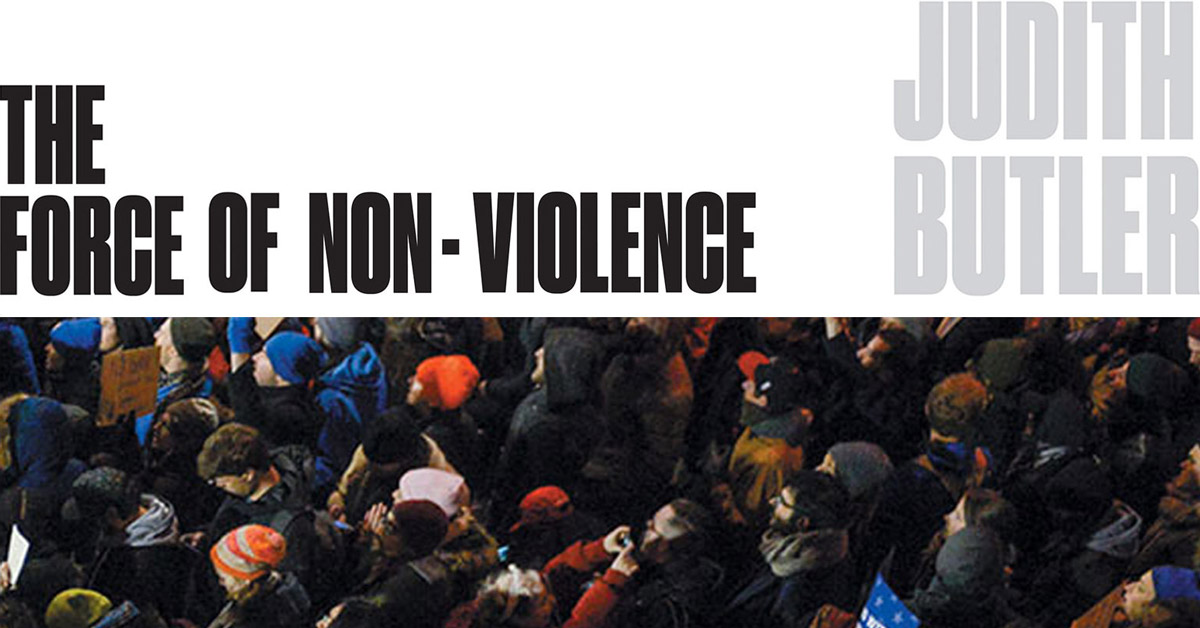The Force of Non-Violence is a book written by Professor Judith Butler, the Maxine Elliot Professor in the Department of Comparative Literature at the University of California at Berkeley and published in 2020. Butler is an American philosopher and gender theorist.
There are several points of contact between Butler’s book and An Antidote to Violence.
- Judith Butler broadens out the concept of violence. That is it is not just physical violence but it can include wounding acts of speech.
- Grieveability is a key concept for Butler and it is something we touch on in our introduction to Antidote to Violence on p 17 that some lives are valued more highly than others. This resonates with the phrase from the Maha Upanishad that “the world is my family”. The question is how do we achieve a situation where that is more than just nice words or hopes? And of course there can be violence and a lack of grievability within a family.
- Judith Butler raises the question of what constitutes the self and the Upanishads have a great deal to say on that. They propose that we are all connected and are equal in terms of the most fundamental aspect of our Self.
The Kath Upanishad says:
The wise one should retire speech into mind,
the mind he should retire into the intelligent self.
The intelligent self he should withdraw into the great self,
the great self he should retire into the Self of peace.
But being connected in principle is one thing, how can that connectivity be practically utilised?
- Butler following the psycho-analyst Melanie Klein, discusses parenting. A corollary to the world is my family is the idea that governments should take a parental role with their citizens but of course there can be good and bad parenting.
- Butler also analyses Walter Benjamin’s essay Critique of Violence and emphasises the importance of language and communication in Benjamin’s essay in terms of facilitating understanding.
- Judith Butler references Hannah Arendt’s distinction between power and violence from Arendt’s essay On Violence: the idea that power is the ability to act in concert and there are historical examples of power overcoming violence. Butler quotes Freud re the “alliance of weaklings” which is basically the same concept as Arendt’s. It was only as we nearly finished writing our book on violence that we came across the work of Erica Chenoweth and Maria Stephan called Why Civil Resistance Works. In the discussion of Freud and group psychology there is the critical question of how any particular group will behave?
- Butler also examines identification. How do we perceive the common humanity in others without tribal identifications creating barriers between people but also acknowledging various types of kinship relationships? Whilst institutions can help they are insufficient as institutions depend on people so the point Butler makes about the ambivalence of love is well made.
- The prejudice against non-violence is a feature of our times and the dominant collective consciousness that currently exists but Butler’s work will contribute to changing that dominant mode of thinking. An Antidote to Violence complements The Force of Non-Violence and specifically by providing peer reviewed evidence that a non-violent approach can consistently and repeatedly reduce violence and increase cooperation.


Leave A Comment